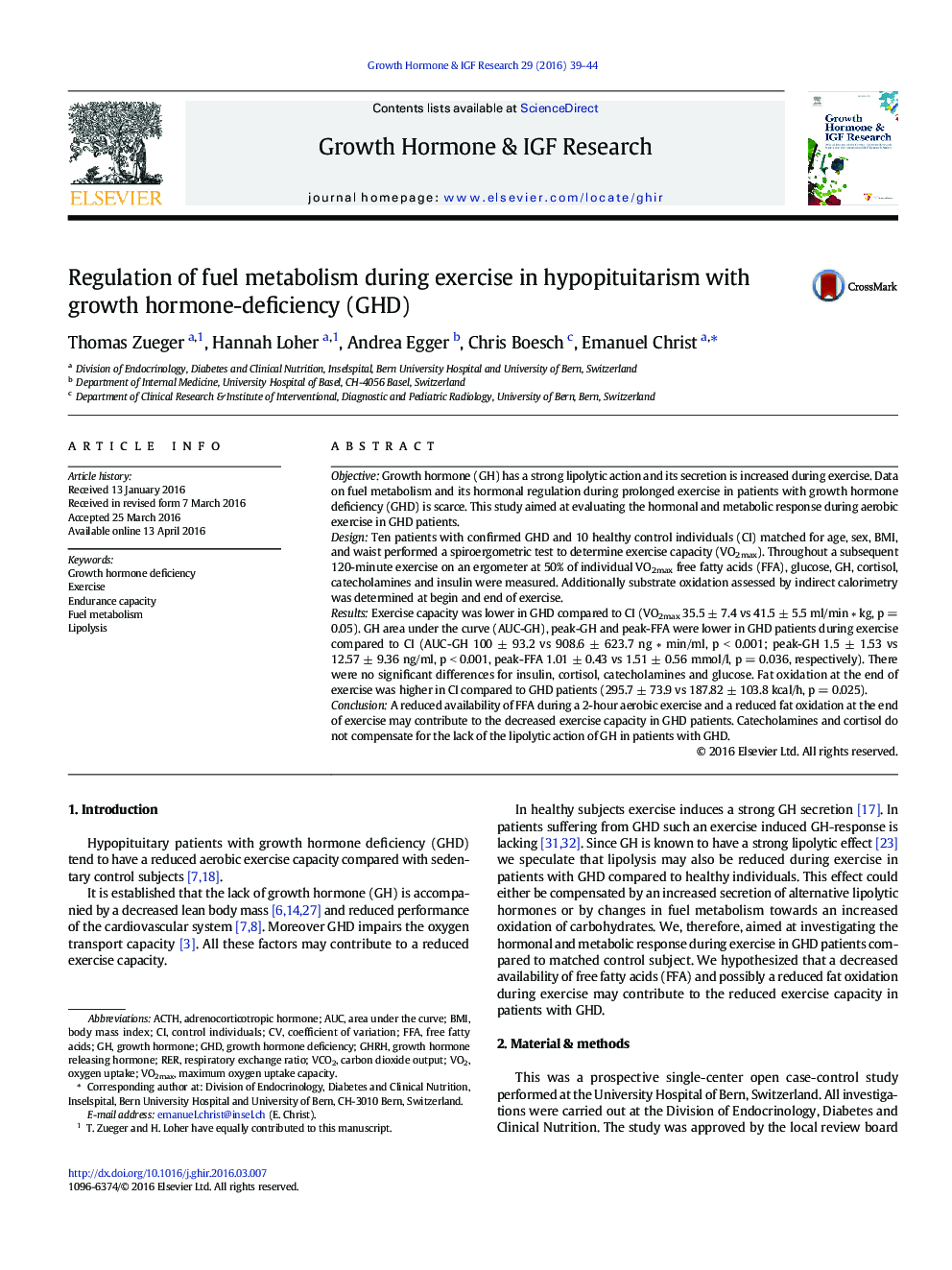| کد مقاله | کد نشریه | سال انتشار | مقاله انگلیسی | نسخه تمام متن |
|---|---|---|---|---|
| 2802523 | 1568952 | 2016 | 6 صفحه PDF | دانلود رایگان |
• Fuel metabolism and its hormonal regulation during exercise in GHD are examined.
• Exercise capacity is reduced in GHD patients compared to healthy individuals.
• During exercise FFA and fat-oxidation are lower in GHD than in healthy controls.
• Catecholamines do not compensate for the lack of the lipolytic action of GH.
ObjectiveGrowth hormone (GH) has a strong lipolytic action and its secretion is increased during exercise. Data on fuel metabolism and its hormonal regulation during prolonged exercise in patients with growth hormone deficiency (GHD) is scarce. This study aimed at evaluating the hormonal and metabolic response during aerobic exercise in GHD patients.DesignTen patients with confirmed GHD and 10 healthy control individuals (CI) matched for age, sex, BMI, and waist performed a spiroergometric test to determine exercise capacity (VO2max). Throughout a subsequent 120-minute exercise on an ergometer at 50% of individual VO2max free fatty acids (FFA), glucose, GH, cortisol, catecholamines and insulin were measured. Additionally substrate oxidation assessed by indirect calorimetry was determined at begin and end of exercise.ResultsExercise capacity was lower in GHD compared to CI (VO2max 35.5 ± 7.4 vs 41.5 ± 5.5 ml/min ∗ kg, p = 0.05). GH area under the curve (AUC-GH), peak-GH and peak-FFA were lower in GHD patients during exercise compared to CI (AUC-GH 100 ± 93.2 vs 908.6 ± 623.7 ng ∗ min/ml, p < 0.001; peak-GH 1.5 ± 1.53 vs 12.57 ± 9.36 ng/ml, p < 0.001, peak-FFA 1.01 ± 0.43 vs 1.51 ± 0.56 mmol/l, p = 0.036, respectively). There were no significant differences for insulin, cortisol, catecholamines and glucose. Fat oxidation at the end of exercise was higher in CI compared to GHD patients (295.7 ± 73.9 vs 187.82 ± 103.8 kcal/h, p = 0.025).ConclusionA reduced availability of FFA during a 2-hour aerobic exercise and a reduced fat oxidation at the end of exercise may contribute to the decreased exercise capacity in GHD patients. Catecholamines and cortisol do not compensate for the lack of the lipolytic action of GH in patients with GHD.
Journal: Growth Hormone & IGF Research - Volume 29, August 2016, Pages 39–44
